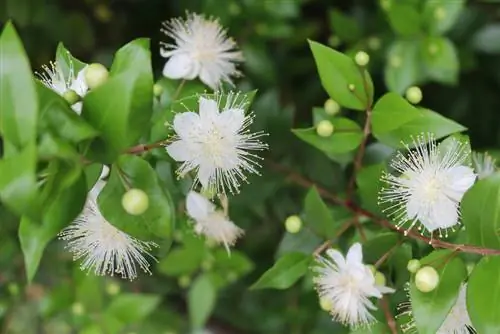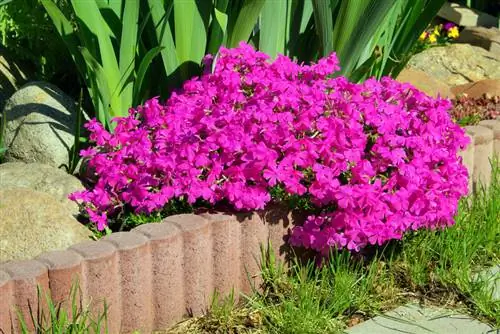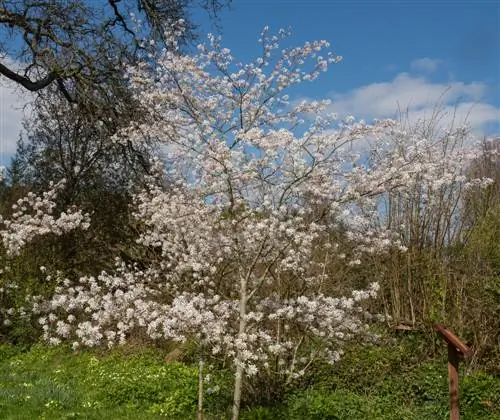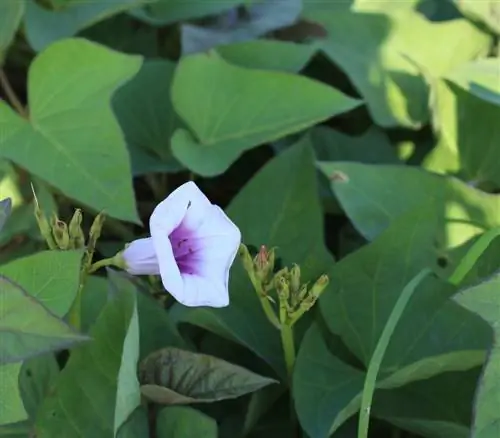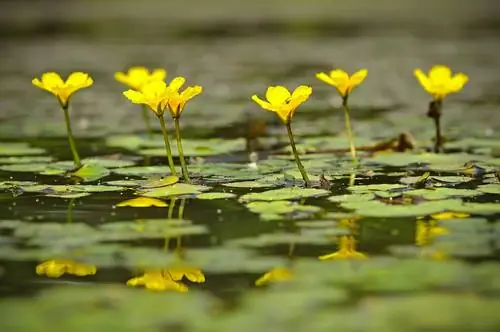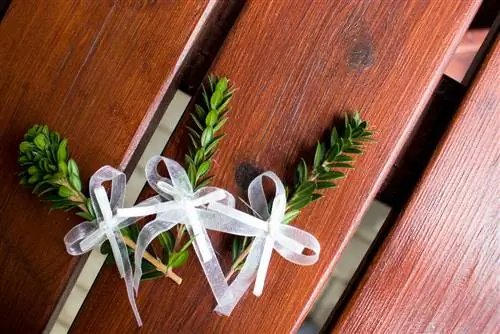- Author admin leonars@hobbygardeners.com.
- Public 2023-12-16 16:46.
- Last modified 2025-01-23 11:22.
As a plant with great symbolic meaning, myrtle is often used as a grave plant. If you take the basic needs of the shrub into account, it requires little care and is considered an easy plant for graves.
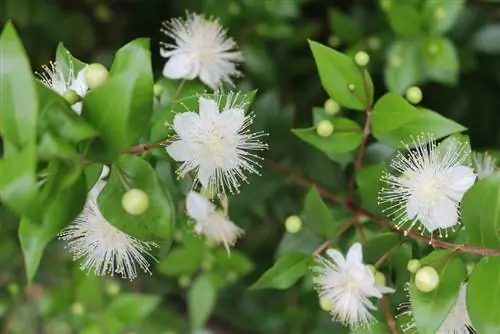
Why is myrtle suitable as a grave plant?
The myrtle is ideal as a grave plant because it has evergreen leaves and a long flowering period from May to September. It is perennial but not hardy and should be planted after the last frost. Myrtle can be combined well with bush daisies, magic snow or elf mirror.
Is myrtle suitable as a grave plant?
With its evergreen leaves and long flowering period, the myrtle isideal as a grave plant Grave visitors can enjoy the delicate flowers from May to September. While the flowers of the common myrtle are white, the Japanese myrtle also blooms in red or pink. The dark green leaves also highlight the flowers of other grave plants particularly well. After flowering, blue-black fruits adorn the myrtle.
Is myrtle an annual or perennial?
Myrtle is usually planted as an annual plant, but with good care it can beperennial. However, since it is not hardy, it must be dug up in autumn and overwintered in a cool but frost-free place.
When is the best time to plant myrtle on the grave?
Myrtle can be plantedafter the last frost outdoors. To be on the safe side, wait for the Ice Saints to fill a grave with myrtle.
Tip
Good combinations with myrtle
The simple, delicate appearance of myrtle can be easily combined with many plants. A combination of myrtle with daisies, magic snow or elf mirror is particularly recommended. Together with laurel, the grave takes on a summery, Mediterranean nuance.

